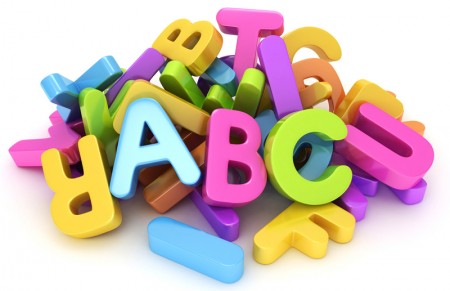Pronunciation Hell: Why Aren’t English Words Spelled Properly?
 If you have ever taught English or just helped out a foreign friend learning the language then you probably got asked about spelling at some point. More specifically, the student will have asked why on Earth some words are pronounced completely differently from the way they are spelled.
If you have ever taught English or just helped out a foreign friend learning the language then you probably got asked about spelling at some point. More specifically, the student will have asked why on Earth some words are pronounced completely differently from the way they are spelled.
Anyone who has grown up with a phonetic language like Spanish or, to a lesser extent, German or Italian can find it difficult to understand our spellings. They are used to doing what the game show host urged us to do when he told us to Say what you see. Unfortunately, if you say what you see with a lot of English words no one will have a clue what you are talking about. How did these words get so complicated? The following are just a few examples of how muddled the answer can be sometimes.
Wednesday and the Poetic Fury
Wednesday is of one the many words in English that has gone through a number of different spellings over the years. In this case, it is all the fault of a chap called Woden. He wasn’t just any old guy though; he was a god. The Anglo Saxon god of fury, poetry and inspiration no less, so he was a pretty versatile sort of deity. Wednesday is his day, which is worth bearing in mind if you are planning on some inspired poetic fury anytime soon. The big problem was how to spell this day. We tried Wodnesdaeg, Wenysday, Wonsday and a few more attempts until we settled on the current spelling and the pronunciation which doesn’t really reflect it. Don’t worry if you get it wrong, even Shakespeare wasn’t convinced by it and used Wensday instead.
 February and the Disappearing R
February and the Disappearing R
January February I don’t understand, sang Barbara Dickson. Neither do we, Barbara dear, neither do we. It looks like there are two R's in February but most people don’t ever say the first one. I have sometimes wondered whether the soft, sometimes disappearing R in English is to blame for Brits finding it tough to pronounce the letter in other languages where the sound is harder. Anyway, what we want to know is why the word looks like this in the first place. It turns out that the month gets its name from Feverier in French and started life in English as Feverere. However, a later trend for making our words appear more like the original Latin words messed things up more. The Latin name is Februarius and the modified English word become closer to this but somehow lost the first R from the pronunciation in the process.
Coronel: A Tale of Two Spelling
This time, the word sounds like something completely different from the way it is spelled. In this case, the problem is that in the 16th century English language speakers could choose between using Coronel from the French language or Colonel, which came from Italian. What would the most intelligent solution be in order to move forward with just the one version of the word? That’s right, spell it like the French but pronounce it like the Italians. Genius.
The richness and complexity of the English language comes from the fact that it is a fusion of various tongues which have come together over the centuries. Would it be a good thing if it became less complex or is it fine as it is?


